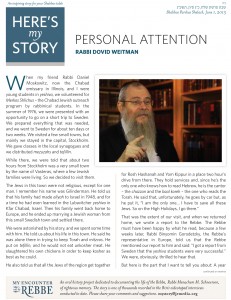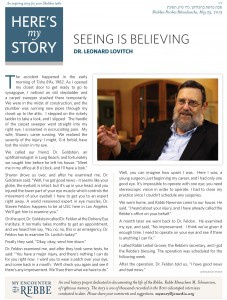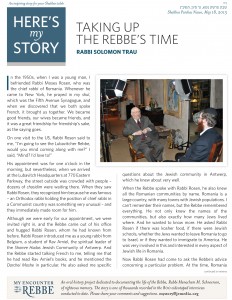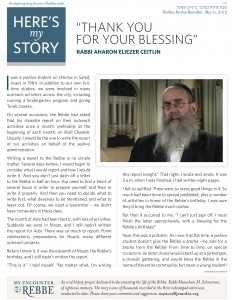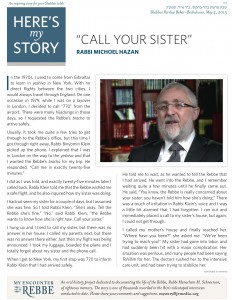HMS: Personal Attention
When my friend Rabbi Daniel Moskowitz, now the Chabad emissary in Illinois, and I were young students in yeshiva, we volunteered for Merkos Shlichus – the Chabad Jewish outreach program by rabbinical students. In the summer of 1976, we were presented with an opportunity to go on a short trip to Sweden. We prepared everything that was needed, and we went to Sweden for about ten days or two weeks. We visited a few small towns, but mainly we stayed in the capital, Stockholm. We gave classes in the local synagogues and we distributed mezuzahs and tefillin.
While there, we were told that about two hours from Stockholm was a very small town by the name of Vasteras, where a few Jewish families were living. So we decided to visit them.
The Jews in this town were not religious, except for one man. I remember his name was Gilinderman. He told us that his family had made aliyah to Israel in 1948, and for a time he had even learned in the Lubavitcher yeshiva in Kfar Chabad, Israel. Then his family went back home to Europe, and he ended up marrying a Jewish woman from this small Swedish town and settled there.
We were astonished by his story, and we spent some time with him. He told us about his life in this town. He said he was alone there in trying to keep Torah and mitzvos. He put on teffilin, and he would not eat unkosher meat. He slaughtered his own chickens in order to keep kosher as best as he could.
He also told us that all the Jews of the region get together for Rosh Hashanah and Yom Kippur in a place two hour’s drive from there. They hold services and, since he’s the only one who knows how to read Hebrew, he is the cantor – the chazzan and the baal koreh – the one who reads the Torah. He said that, unfortunately, he goes by car but, as he put it, “I am the only one… I have to save all these Jews. So on the High Holidays, I go there.” (more…)


